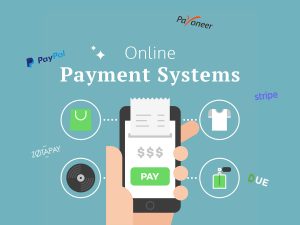
The customers that visit your online business will only buy the goods and services you have for sale if they feel secure. With worries about security threats such as phishing email attacks and identity theft, if you can show that your online business uses the latest encryption technology from reputable encryption sources, your new digital business will become one of the most trusted on the Internet.
Browser Security
The security of your online business begins as far as your customers are concerned with their Internet browser. As the browser is their window into your online business, ensuring that the personal data they enter into their browser is secure is of paramount importance.
Browser security is taken care of by the Secure Socket Layer (SSL). SSL is the basis for all E-commerce transaction across the Internet. Any credit or debit card payments are digitised and encrypted before they travel from your customers’ browser to your business’s servers. All sensitive digital traffic uses SSL as it has proven encryption security that is very difficult to crack.
You can see SSL in action on any E-commerce website. The ‘http’ of the websites address changes to ‘https’ the ‘s’ denoting secure. You also often see a closed padlock icon within the Internet browser windows to show that SSL security is active. SSL security and encryption systems are available from a number of suppliers including Thawte and VeriSign that have become trusted encryption sources. You will often see the encryption security keys that these companies offer called digital certificates.
Digital Signatures
Unlike SSL that is usually used in conjunction with E-commerce enabled websites, digital signatures are often found in use encrypting the contents of emails. As their name suggests, an email or any other piece of digital content can be encrypted. Only the person that has the digital signature unlocking code can read or open the digital file that has the digital signature attached to it. For your online business, digital signatures can be useful if you want to send login details to a new customer, or you want to securely send invoices over the Internet.
Encryption and Security for your Online Business
Before you can start to trade online, your business must have in place the encryption and security protocols that your customers will expect. E-commerce has now evolved to the point where consumers are aware of the security issues they face, and the minimum protection they should expect from the online businesses they buy from. Use the checklist below to help you implement SSL security and encryption for your online business:
Check your Servers or Host
Before you can install the SSL certificates it’s a good idea to contact your ISP as they may have specific technical requirements that you must meet. If you use your own servers, you need to check what kind of encryption they support and buy the appropriate encryption certificate.
Link to Secure Web Pages
Once your encryption and security protocols in place you now need to think about the pages within your online business that need to be identified with the ‘s’ after the ‘http’. These pages can be held in a specific location on your server. Your system needs to know that when these pages are called by a customer’s browser, the security certificate must always be used.
Buy your Certificate
For the SSL security and encryption to work you must buy an encryption certificate. It is good practice to buy this from a reputable supplier as you are relying on its systems to make your online business secure. If you are not hosting your own online business, your ISP may have a relationship with a certificate supplier that could cut your costs.
Review your Security Procedures
The digital certificates that you buy to add encryption sources to your website need to be renewed. This is usually done on an annual basis when the digital certificates that you buy expire. Ensure you make any renewals in plenty of time as without valid digital certificates in place, your website isn’t secure.

